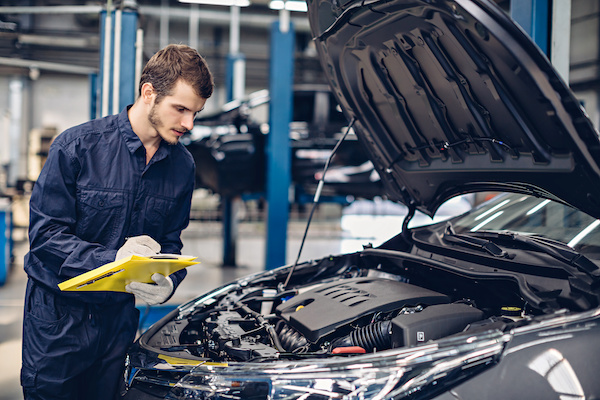Posted on 7/25/2021

No matter what type of car you happen to have, the manufacturer always has a set schedule of maintenance tasks for your automobile. This type of service is usually known as factory scheduled maintenance, or 30/60/90K. Those numbers are significant because the interval between each maintenance service is about 30,000 miles. Many people see this schedule as optional, considering their car might be working fine. However, the schedule is not a scheme to get you to spend money. The service is necessary for the long-term health and condition of your vehicle. You should be more aware of your factory maintenance schedule for several reasons: Your warranty may require it. Some manufacturers place such importance on 30/60/90K maintenance that not following the schedule could void your vehicle warranty. It can prevent minor problems from becoming major. Regular maintenance can identify possible issues early on before they can cause severe damage or vehicle breakdowns. It ... read more
Posted on 6/23/2021

When you purchase something new, there's always a strong enthusiasm and urge to care for the item. That's why we often feel tacitly mandated to take care of your new investment and the reason we read the manufacturer's manual. It's the same case when you purchase a car. You want to understand how to maintain your new ride, get to know it better and keep it running in a good shape for many years to come. The owner's manual contains everything you need to know about the vehicle and the scheduled maintenance routines you need to adhere to for the car's extended longevity. Proper Vehicle Maintenance Your vehicle's owner's handbook is a guide detailing what your car needs and how much is needed to ensure it delivers the desired performance and durability. The manual also specifies the repair techniques for proper auto care, and that might mean the difference between a high-performance car and irreversible damages that dent your finances. With it, you'l ... read more
Posted on 5/18/2021
.jpeg)
Most people know the importance of changing the oil regularly to keep their vehicles running smoothly. However, few think of the coolant system, the water pump, and their role in keeping them safe on the road. The water pump ensures that the coolant runs consistently through the hoses, engine block, and radiator, ensuring that each is kept at a safe temperature. Unfortunately, if the water pump is not working right, the engine will overheat in summer or freeze during winter. This damages cylinder heads, gaskets, and pistons and, eventually, the death of the entire engine. Here are some signs that a pump is failing: Leaking Coolant: If you find a puddle of the coolant where you have parked your car, this may point to a faulty water pump. Various seals and gaskets in the water pump may break, crack or dry out, letting the coolant out of the pump. If you see a puddle of pink, orange, blue, or green liquid on the spot you had parked the car, take it to a repair shop. Dust buildup on the ... read more
Posted on 4/23/2021
.jpeg)
Taking proper care of your car means taking it in for routine maintenance every now and then. If this is your first car or you're just not sure what maintenance services are most important to keep on top of, here is a reference for you: Oil Checking your oil every month is an essential part of maintaining your vehicle. you should find out what type of motor oil is best for your car. You can ask a mechanic for this information. Tires You need to check the air pressure in your tires. If they don't have enough air in them, it increases the likelihood of a blowout but if they're too inflated, they have less traction. You also need to rotate them to get the most use out of them in the long run. Fluids There are several fluids that you should check for leaks and refill, if necessary: Brake fluid Oil Power steering fluid Coolant/antifreeze Transmission fluid Air Filter Your air filter might get wet and harbor bacteria or mold that will spray into the car when you turn ... read more
Posted on 3/16/2021
.jpeg)
Driving your car through a low transmission fluid level is dangerous to you and the vehicle. Failure to top up the fluid is a hazard that might cause extreme damage to the transmission, the engine, and essential components that keep the car running. What is Transmission Fluid Most people have no idea what transmission fluid is and how it functions. The transmission fluid is the fluid that lubricates the transmission, the gears, the bearings, and metal parts of a manual or automatic gearbox. It keeps the parts from grinding down during movement, ensuring they don't eat away and tear. In an automatic transmission, the transmission fluid causes lubrication to the moving parts and provides hydraulic pressure making internal parts function better. It allows a vehicle to shift gears with ease and without wearing out important parts. Whether your vehicle's transmission is automatic or manual, you use different transmission fluid types according to the vehicle's manual. The tr ... read more